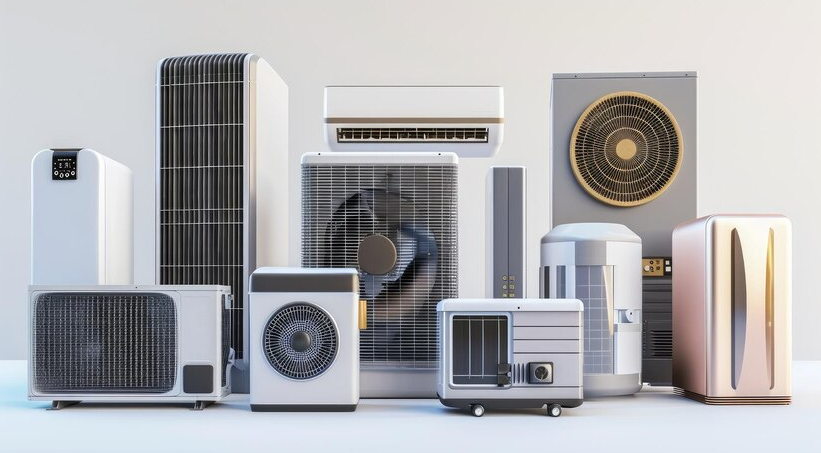In any HVAC system, the fan is a critical component responsible for distributing air throughout your home. Whether it’s the blower fan inside your furnace or the condenser fan outside, these fans are essential for proper airflow, temperature regulation, and the overall efficiency of your heating and cooling system. When your fan isn’t functioning correctly, your HVAC system can experience reduced performance, higher energy bills, and, in some cases, complete failure.
Understanding the Role of the Fan in Your HVAC System
Fans in an HVAC system come in two primary forms: the blower fan inside the furnace or air handler, and the condenser fan outside. Both play essential roles in moving air through the system, maintaining airflow, and ensuring the proper operation of your heating and cooling systems.
- Blower Fan: The blower fan moves air through the ducts and into your living space. It helps push warm air from the furnace or cool air from the air conditioner through the vents to keep your home at the desired temperature.
- Condenser Fan: The condenser fan is located in the outdoor unit of your air conditioner or heat pump. This fan helps dissipate the heat absorbed by the refrigerant during the cooling process. It plays a crucial role in heat exchange, allowing your system to maintain its cooling efficiency.
Without these fans working properly, your HVAC system cannot regulate temperature effectively, leading to poor indoor air quality and discomfort in your home. That’s why regular maintenance and attention to these components are necessary.
Signs That Your HVAC Fan Needs Repair
Like all mechanical components, fans in your HVAC system are subject to wear and tear over time. Understanding the signs that your fan may need repair or replacement can help you catch problems early before they lead to system failure. Here are some common signs that indicate your HVAC fan might need attention:
1. Unusual Noises
If you hear strange noises coming from the fan, such as grinding, screeching, or rattling sounds, it may be a sign of internal damage. These noises often indicate that there is something wrong with the fan motor, blades, or bearings. A well-maintained fan should operate quietly, so any sudden increase in noise levels warrants a closer inspection.
2. Inconsistent Airflow
If your HVAC system is producing uneven airflow or no airflow at all, the fan could be malfunctioning. A blower fan that is not functioning properly may fail to distribute air evenly, causing hot or cold spots in your home. Inadequate airflow could also lead to longer heating or cooling cycles and inefficient energy use.
3. System Not Turning On
If your HVAC system isn’t starting or is frequently turning on and off, the issue could be with the fan. A faulty fan motor or electrical connection could prevent the system from starting. If you’ve already checked the thermostat settings and electrical connections, but the system still isn’t working properly, it’s time to inspect the fan for issues.
4. Fan Not Spinning or Moving Slowly
If the fan is not spinning at all, or it’s spinning much slower than usual, it’s likely that the motor or another internal part of the fan has malfunctioned. A slow-moving fan can also result in reduced cooling and heating efficiency, as it will not be able to circulate the air properly throughout the system.
5. Burning Smell or Excessive Heat
If you notice a burning smell or excessive heat coming from the fan or the HVAC unit itself, this could indicate an electrical problem or that the fan motor is overheating. Overheating components can lead to fire hazards or significant damage to the system if not addressed promptly.
DIY Maintenance Tips for HVAC Fans
Performing regular maintenance on your HVAC fan is essential to ensuring its longevity and optimal performance. While some repairs should always be handled by a professional, there are several DIY maintenance tasks that homeowners can do themselves to keep their fans running smoothly.
1. Turn Off Power Before Starting
Before performing any maintenance on your HVAC system, make sure to turn off the power completely. This ensures your safety while working on the system and prevents electrical shocks. You can either switch off the power at the thermostat or disconnect the power at the circuit breaker.
2. Clean the Fan Blades
Over time, dust, dirt, and debris can accumulate on the fan blades, causing the fan to work harder than necessary. Cleaning the fan blades regularly helps maintain proper airflow and reduces strain on the motor. Use a soft cloth or a vacuum cleaner with a brush attachment to gently clean the blades. Be sure to remove any debris from around the fan to ensure it can spin freely.
3. Lubricate the Fan Motor
The fan motor is a crucial part of the system, and over time, the bearings can wear out due to friction. To reduce wear and extend the motor’s life, it’s essential to lubricate the motor’s moving parts. Use a lubricating oil that is designed for HVAC systems, and apply it sparingly to the fan’s motor and bearings to keep the fan running smoothly.
4. Inspect the Fan Belt
If your HVAC system uses a fan belt, it’s essential to check the belt periodically for signs of wear, cracking, or looseness. A loose or worn-out belt can cause the fan to stop working or cause it to work inefficiently, affecting the overall performance of the system. If the fan belt is damaged, it should be replaced immediately.
5. Clear the Area Around the Fan
The fan needs unrestricted airflow to function efficiently. Check the area around your HVAC unit to ensure that there are no obstructions blocking the fan’s airflow. This includes leaves, dirt, debris, or anything that could restrict the air from circulating properly. For outdoor units, ensure that the condenser fan is not obstructed by vegetation or debris.
6. Check the Capacitor
The capacitor is responsible for providing the fan motor with the electrical energy needed to start and run. If the capacitor is faulty, the fan may not start at all, or it may run intermittently. Check for signs of damage or leakage around the capacitor, and if it appears worn out, it’s best to have a professional replace it.
When to Call in a Professional Technician
While DIY maintenance can help extend the life of your fan, certain issues require the expertise of a professional HVAC technician. Here are some scenarios where it’s best to call an HVAC specialist for repair or replacement:
1. Fan Motor Issues
If the fan motor is making loud, unusual noises or not functioning at all, it may need professional attention. Replacing or repairing a fan motor requires technical expertise and specialized tools to avoid damaging the system.
2. Electrical Problems
If the fan is experiencing electrical issues, such as tripping the circuit breaker or causing intermittent power outages, it’s essential to call in a professional. HVAC technicians are trained to handle electrical repairs safely and ensure that your system operates correctly.
3. Fan Blade or Housing Damage
If the fan blades are bent or broken, or if the fan housing is cracked or damaged, it’s time to call a professional. Damaged fan blades can affect airflow and cause the motor to overheat, leading to further damage to the system.
4. Overheating
If the fan is overheating or emitting a burning smell, it’s critical to address the issue immediately. Overheating components can cause permanent damage to the fan and other parts of the HVAC system. A professional technician can diagnose the cause of overheating and perform the necessary repairs.
Why Homeowners Trust Elite Air & Heat of Summerville
At Elite Air & Heat of Summerville, we’re more than just an HVAC company—we’re your local comfort specialists dedicated to keeping your home cozy in winter and cool in summer. We take pride in delivering top-tier service with a personal touch, ensuring your HVAC system runs efficiently all year long.
What Sets Us Apart?
Skilled & Certified Technicians
Our technicians are highly trained experts who know HVAC systems inside and out. Whether it’s fan issues, airflow problems, or a complete system breakdown, we’ll diagnose and fix it quickly to restore your home’s comfort.
Fast, Reliable Service When You Need It Most
We understand how frustrating it is when your HVAC system isn’t working properly. That’s why we provide prompt, dependable service—minimizing downtime and getting your system back up and running as quickly as possible.
Complete HVAC Care, All Year Round
From routine maintenance to complex repairs, we handle it all. Whether you need a quick tune-up or a major fix, we’ll ensure your HVAC system is operating at peak efficiency to keep your home comfortable no matter the season.
Master HVAC Fan Maintenance with These DIY Tips
Your HVAC fan plays a crucial role in ensuring proper airflow and system performance. With a little routine DIY maintenance, you can help extend your system’s lifespan and avoid costly repairs.
- Keep the fan blades clean – Dust buildup can cause inefficiency, so a gentle cleaning can go a long way.
- Check for unusual noises – Grinding or rattling sounds may signal loose or worn-out parts.
- Ensure proper airflow – A clogged filter can overwork your fan, so replacing it regularly is essential.
While these simple tips can help maintain your system, some issues require expert attention. If your HVAC fan is making strange noises, struggling to circulate air, or causing system failures, don’t wait—call Elite Air & Heat of Summerville.
Our dedicated team will ensure your system runs flawlessly, keeping your home comfortable year-round.
Need expert HVAC service? Contact us today and experience the Elite difference!

